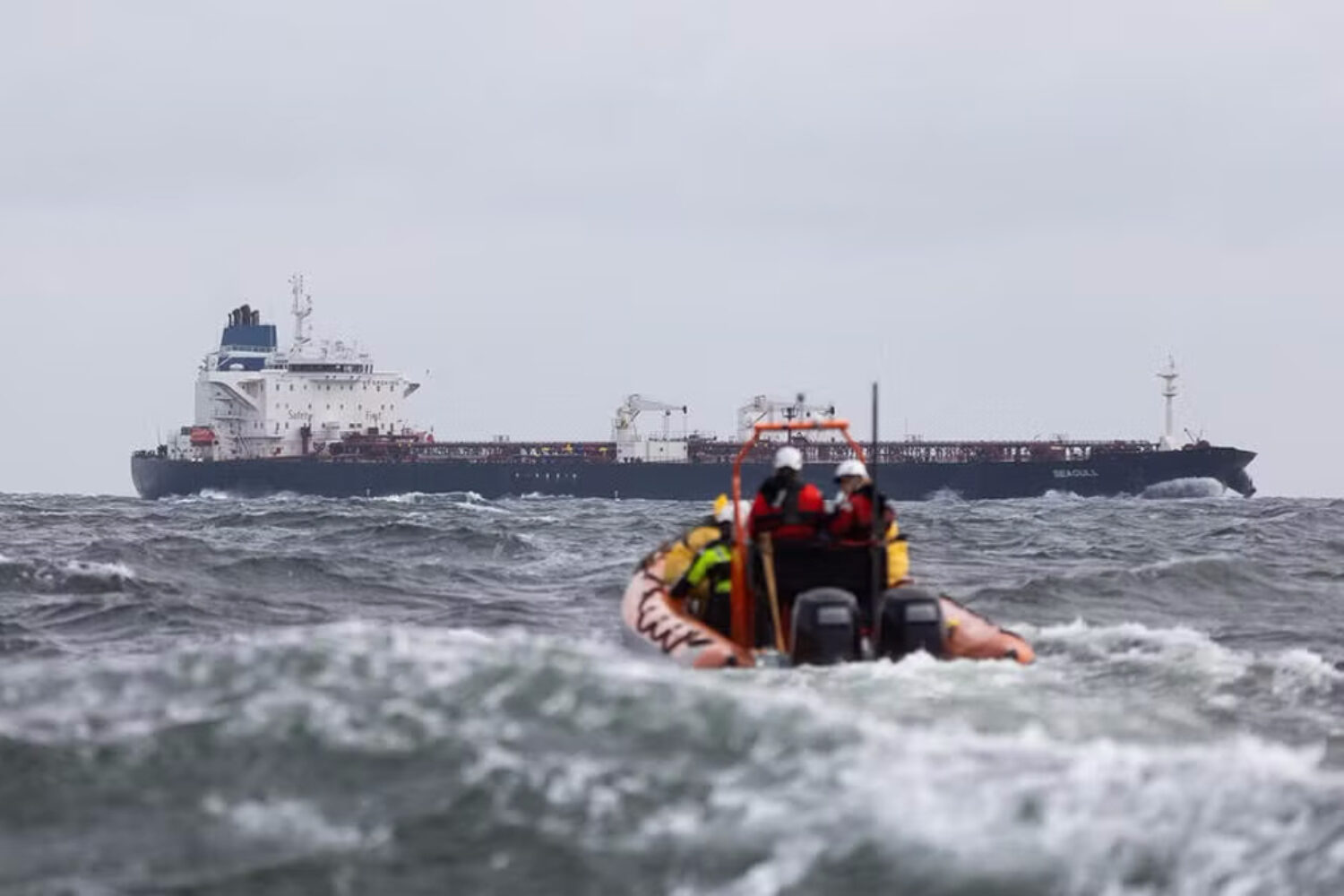Twelve European countries have decided to take stronger measures against the Russian “shadow fleet”. At the same time, the EU has expanded its list of sanctions.
The aim is to “disrupt and deter” Russia’s so-called shadow fleet, prevent sanctions violations and increase the costs of the war in Ukraine for Moscow, the Estonian government announced.
Germany, the UK, Poland, the Netherlands, the five Nordic countries and the three Baltic states want to take joint action against Russia’s shadow fleet of tankers and other cargo ships transporting Russian oil, military goods or grain stolen from Ukraine, according to the statement. The Joint Expeditionary Force (JEF) of ten neighboring states is meeting today, Tuesday, in Tallinn, Estonia.
The ships in the shadow fleet are often older units that are not regulated or insured by the usual Western providers. The EU had previously banned 52 other ships from entering EU ports with its 15th sanctions package.
Shadow fleet circumvents the oil embargo
The supervisory authorities of the UK, Denmark, Sweden, Poland, Finland and Estonia are to check the insurance documents of suspicious ships sailing through the English Channel, the Danish straits, the Gulf of Finland and the Øresund more closely in future. The aim is to restrict Russian energy exports and cut off Moscow’s sources of income to finance the war in Ukraine. At the same time, it is also intended to reduce the risks to shipping and the environment.
Russia has long been accused of relying on ships that are not owned by Western shipping companies or insured by Western insurers in order to circumvent a Western price cap for Russian oil exports to third countries. These ships are outdated, technically unsafe and uninsured, said Norway’s head of government Jonas Gahr Store in Tallinn.













